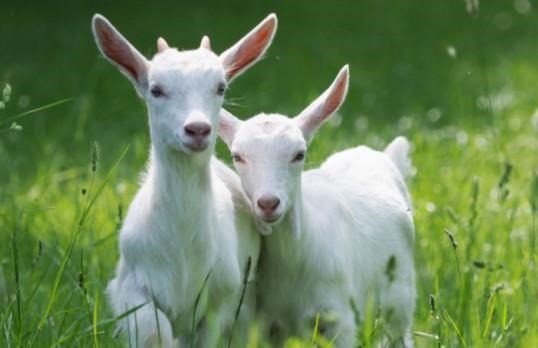Now in its eighth year, the Farm Bureau Ag Innovation Challenge is a national business competition that showcases U.S. startups developing innovative solutions to challenges facing America’s farmers, ranchers and rural communities.
This FBNews article features The Bêne Baby Company, a participant in the 2020 Challenge, which culminated at the American Farm Bureau Convention in Austin, Texas, in January 2020. As a semi-finalist, The Bêne Baby Company was awarded a total of $10,000.
Formulated after much research to match the composition of breast milk, Bêne Baby, the only goat’s milk-based toddler formula made and sold in the U.S., is now available for purchase through the company’s website, and launching soon with one of the nation’s largest grocery chains, Kroger. The Bêne Baby Formula, created by Drs. Nikos Linardakis and James Esselman, also provides a value-added market for the goat farming industry. The Bêne Baby Company is based in Wisconsin.
When he had his own children, Dr. Linardakis took a good look at the formulas on the market and was concerned about the lack of nutrition they provided.
Though his teenage children are long past the formula stage, Dr. Linardakis felt compelled to revisit the formula aisle to see if there had been any significant changes from two decades ago. Disappointed that formula companies had failed to keep pace with improvements in nutrition science, he began researching the required and recommended ingredients in a quest to develop a healthier alternative — to create a product with a nutritional profile that mirrored breast milk. That research kept bringing him back to goat’s milk, which his Greek parents had raised him on.

The Nutritional Benefits of Goat’s Milk
“We looked at every aspect of breast milk’s nutritional profile – the proteins, fats, sugars and functional components like immunoglobulins, lactoferrin and more – so we could match the formulation as completely as possible,” Dr. Linardakis explained. “Getting as close to breast milk was so important to us, we put most of our funds into the formulation.”
Beyond the alignment with breast milk’s nutritional profile, the casein and whey proteins in goat's milk are easier for toddlers to digest. The Bêne Baby toddler formula, designed for children from 1-3 years old, allows for a smoother transition to dairy products into adolescence and adulthood, decreasing the likelihood of dairy intolerances in the future.
Farm Connections
Dr. Linardakis’ partner, Dr. Esselman, is a dentist by trade – and a cattle farmer. He and Dr. Linardakis reached out to other cattle farmers to see if they would consider switching to goats or adding them to their operations for The Bêne Baby Company. The company is partnering with LaClare Family Creamery of Malone, Wisconsin, to build a network of goat dairy farmers for the future supply of milk.
Dr. Linardakis is thrilled The Bêne Baby Company has created another market for dairy farmers.
“We want everyone to benefit from this product – farmers, consumers and the company,” he said.
Click here to see more...